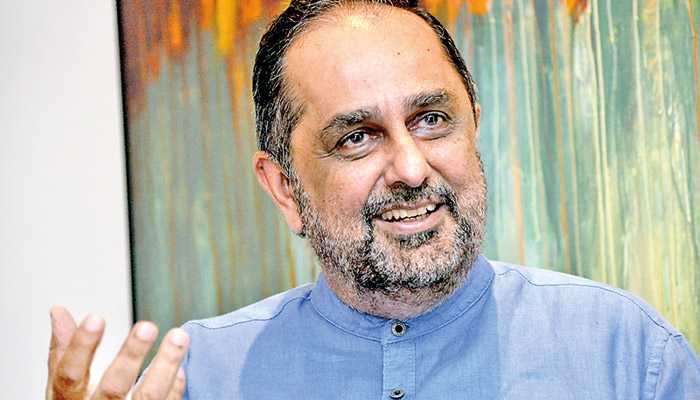BETHLEHEM – A Christian professor teaches about Jesus Christ, the Church, and the Holy Trinity at a Catholic university. It may seem normal to do so, except that 75 percent of the students are Muslim. This is a required course at Bethlehem University, and the course titled “religious cultural studies” is co-taught by a Christian professor and a Muslim one.
Christians and Muslims live side by side in Palestine. A significant part of a Palestinian’s identity is shaped by his or her community of faith. Most of what Muslims know about Christianity is what their religion teaches them, which is different in many respects to what Christianity says about itself; and most of what Christians know about Islam is what they are taught at schools and what members of their community say about their Muslim neighbours. Some tend to see Islam as a threat, at least a demographic one, and they presume that Islam includes an anti-Christian component. Hence, students often enter the gates of Bethlehem University with misunderstandings and prejudices about the religion of the other.
When they join the university, these students, both Christians and Muslims, embark on a new experience. They study together, they live under the same conditions, they face the same problems—both in the University and outside—and sometimes they ask each other questions about their faiths, often without receiving satisfactory answers. Joint religious studies provide an opportunity for students to understand the position of the other and begin to respect the differences.
The Christian part of the course, which I teach, has three major components: the Bible, the main Christian doctrines, and contemporary issues. The students ask a lot of questions. Discussion topics include: women’s dress codes and other gender issues, the Crusades, the relationship between faith and culture, violence, and mutual misunderstanding.
There is a tendency for people to view their religion as the only legitimate one. Some students join our course with fixed ideas about their own beliefs and the way they see the other; with these students, we try to engage in a dialogue—a difficult, yet necessary one. In some cases, the outcome can be limited. To see positive things about the other’s religion takes a lot of courage. So when a student makes a positive discovery about a religion that is not his or her own, it demonstrates an openness and shift in attitude. When I ask my students, for example, to tell me what they like in the Gospel (which they read in the first week), some find it difficult to answer. So I rephrase my question: what do you find in the Gospel that will make you a better Muslim? This allows them to feel more relaxed and seek out elements of the Gospel that they like.
Real progress is made when we realise that the divide on a given issue can cross religious differences and Christians and Muslims may find themselves on the same side of a discussion.
At Bethlehem University, students have a right to celebrate their own faith publically. Muslims decorate the gardens of the university on the first day of Ramadan, and when Christmas approaches, the main hall of the university is filled with students, both Muslim and Christian, celebrating the birth of Christ. On Fridays, classes stop for the “prayer hour”, so Muslims go to a hall to pray, and Christians to the chapel to celebrate the mass, before returning to the classrooms.
In our course we intended to teach about Judaism as well, but due to the difficulties of employing a Jewish teacher (Jewish Israelis are not allowed by Israel to go to the Palestinian Territories), the teaching of Judaism is limited to the Hebrew Bible and history as it is told in the Old Testament—from Adam to the Maccabees. Although, the section on Judaism is limited, we feel that the course tries to promote the common values of all three religions and that the students learn to appreciate Judaism as the first monotheistic religion, or as the Muslim students put it: the first heavenly religion. A more in depth course on Judaism is offered to students in the department of Religious Studies and to students of tourism.
The four years spent at Bethlehem University mark the students for life. We know about the difficulties the students face in their lives outside the university; we know about the difficulties of living under occupation and the anxiety of not finding a decent job when they graduate. They have real concerns about their future. But when we see their openness and determination to build a better future, they give us the courage to continue.
###
* Fr. Jamal Khader, a Palestinian Catholic priest from the Latin Patriarchate of Jerusalem, is a professor of theology at the Latin Seminary (Beit Jala), Chairperson of the Department of Religious Studies, and Dean of the Faculty of Arts at Bethlehem University. This article is part of a special series on freedom of religion in Israel and the Palestinian Authority and was written for the Common Ground News Service (CGNews).
Source: Common Ground News Service (CGNews), 19 November 2009, www.commongroundnews.org
Copyright permission is granted for publication.
Post Disclaimer | Support Us
Support Us
The sailanmuslim.com web site entirely supported by individual donors and well wishers. If you regularly visit this site and wish to show your appreciation, or if you wish to see further development of sailanmuslim.com, please donate us
IMPORTANT : All content hosted on sailanmuslim.com is solely for non-commercial purposes and with the permission of original copyright holders. Any other use of the hosted content, such as for financial gain, requires express approval from the copyright owners.
 Sri lanka Muslims Web Portal Sri Lanka Muslims News Center
Sri lanka Muslims Web Portal Sri Lanka Muslims News Center



